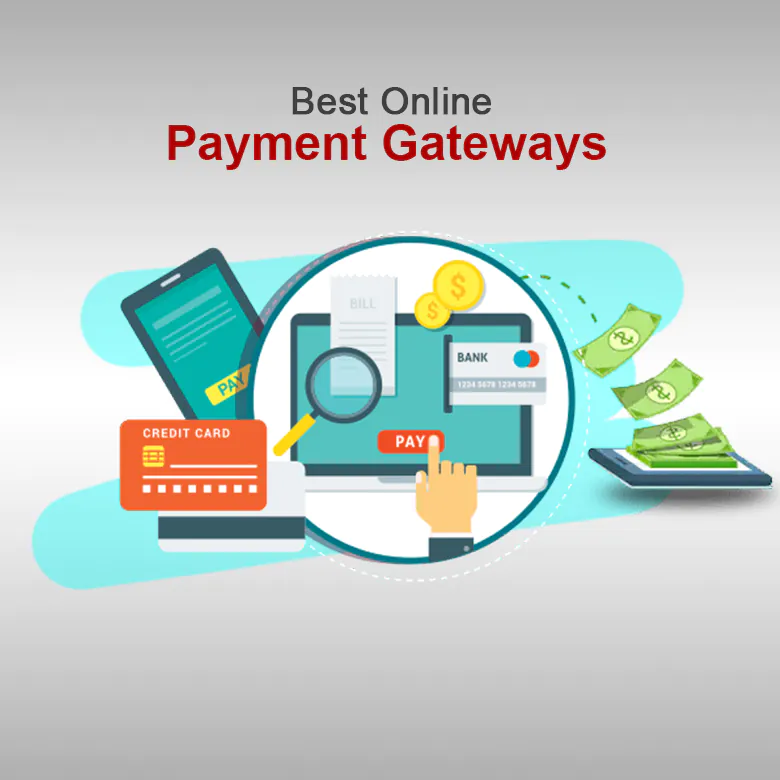Pakistan’s e-commerce market has been accelerating rapidly, and one of the central enablers behind that growth is the modern payment gateway. A reliable gateway does more than accept cards — it reduces friction at checkout, expands payment options (wallets, cards, pay-by-link), improves success rates, and helps merchants reconcile and settle funds quickly. This post explains how payment gateways — with examples from XPay, Easypaisa, JazzCash, Bank Alfalah and others — are powering the online ecosystem in Pakistan and what merchants should consider when choosing a provider.
Why payment gateways matter for e-commerce
-
they keep customers on the checkout flow (less redirects → fewer abandons),
-
enable multiple local payment methods (mobile wallets, cards, bank transfers),
-
provide merchant dashboards and reconciliation tools, and
-
offer settlement and fund management so businesses can operate cash-flow efficiently.
These capabilities directly translate into higher conversion rates, faster onboarding for merchants, and the ability to sell to customers who don’t use international cards.
XPay Payment Gateway built for Pakistani merchants
XPay by PostEX, serves as Pakistan’s primary online payment gateway. It enables merchants to process transactions directly on their websites or apps.
The platform holds PCI certification and supports businesses of all sizes. Companies such as PriceOye, Allmytech, Domino’s Pakistan, and Deal Cart use XPay. It increases transaction success rates by up to 35% and focuses on security and growth.
Key Features
XPay includes tools to solve common payment issues:
- On-Site Checkout: Processes payments on the merchant’s page. Reduces delays and builds trust.
- PCI-DSS Compliance and Tokenization: Meets security standards. Stores card data safely for repeat use. Lowers fraud risks.
- Google Pay Integration: Allows one-tap payments with saved cards. Uses Google’s security features.
- Subscriptions & Recurring Payments: Manages fixed or custom plans. Automates renewals and retries failed charges.
- Dynamic Routing: Sends transactions through optimal channels to improve approval rates.
- XShield Fraud Protection: Monitors activity in real time. Checks email, phone, IP, and card details. Includes an admin panel for reviews and reports.
- Bank-Specific Discounts: Applies offers based on the customer’s bank card.
- Payment Links: Creates shareable links via SMS, email, or social media. No coding needed.
- Developer Tools and Integrations: Uses one API for all methods. Offers SDKs for React Native, Flutter, Kotlin, and Swift. Works with Shopify, WooCommerce, and any merchant ID.
Benefits for Merchants and Customers
Merchants gain:
- Up to 35% higher completion rates.
- Lower fraud losses.
- Automated billing.
- Scalable tools.
- Support and documentation.
Customers receive:
- Fast checkouts.
- No repeated data entry.
- Secure transactions.
- Bank-specific offers.
Security and Supported Payment Methods
XPay meets PCI-DSS standards. Tokenization encrypts card data. XShield detects threats. Google Pay adds device protection.
Supported methods include:
- Credit and debit cards.
- Google Pay.
- Digital wallets.
- Recurring billing.
All use one API.
Pricing and Getting Started
Pricing is transparent and scales with volume. No hidden fees. Request details through the official form. Sign up at xpay.postexglobal.com to start accepting payments.
XPay by PostEX provides a secure, efficient payment system for Pakistani online businesses. It combines practical tools with strong security to support transaction growth.
Major local players: Easypaisa, JazzCash, Bank Alfalah (Alfa) — what they bring
-
Easypaisa
Easypaisa is one of Pakistan’s most widely used mobile wallets and offers a merchant online payment gateway that supports mobile account payments, OTC, and card acceptance. Easypaisa’s merchant portal and tokenized flows let online businesses accept payments via customers’ Easypaisa accounts and provide instant or daily settlements depending on the method. This widespread consumer adoption makes Easypaisa a strong channel for local conversion. -
JazzCash
JazzCash provides an online payment gateway and merchant portal that supports multiple payment channels — mobile accounts, vouchers, and card payments — plus tools for reconciliation and reporting. JazzCash’s network and mobile-first user base help merchants capture customers who prefer digital wallets and mobile payments. -
Bank Alfalah (Alfa / Alfa Payment Gateway)
Bank Alfalah’s Alfa payment solution (often referenced as Alfa or Alfa Payment Gateway) includes pay-by-link features, IPG (internet payment gateway) services, and merchant support for integration. Alfa’s “Pay By Link” is particularly useful for sellers without a website (social commerce, Instagram/Facebook sellers), letting them collect payments via links and invoices without full integration. Bank Alfalah also provides standard IPG and POS solutions for larger merchants.
How gateways increase conversion and reduce friction (practical mechanisms)
-
Reduced redirect flow: Gateways that allow on-site checkout (i.e., tokenized and embedded flows) keep customers on the merchant site and reduce abandonment. XPay highlights this approach specifically.
-
Multiple local payment methods: Accepting wallets (Easypaisa, JazzCash, Alfa wallet), card networks, and bank transfers increases the chance a customer finds a familiar payment option and completes the purchase.
-
Faster settlement & reconciliation tools: Immediate or daily settlements plus merchant portals reduce admin overhead and give merchants timely cash flow visibility — important for growing e-commerce operations. Easypaisa and JazzCash emphasize merchant portals and settlement details.
-
Pay-by-link and social commerce: Pay-by-link (Bank Alfalah’s Alfa example) enables sellers on social platforms to close sales without a full storefront. This lowers the barrier for small sellers to go digital.
-
Smart routing & redundancy: Gateways that support dynamic/payment routing help maximize authorization success and reduce decline rates by routing transactions via the best available processor. XPay mentions dynamic/smart routing as part of improving success rates.
Real merchant use cases (how businesses benefit)
-
small apparel stores accept card + wallet payments and see higher checkout completion because customers can pay with whatever method they trust,
-
D2C brands use on-site checkout (tokenized) to build one-click repeat purchases and store payment tokens securely for subscriptions,
-
social sellers use pay-by-link to convert Instagram or WhatsApp conversations into completed sales quickly, and
-
marketplaces rely on gateways that support split settlement/escrow and fast reconciliation so vendors receive funds on schedule.
What merchants should consider when choosing a gateway
-
Payment methods supported: Does it accept the wallets and cards your customers use (Easypaisa, JazzCash, Alfa, Visa/Mastercard)?
-
Checkout UX: On-site embedded checkout vs redirect — embedded reduces abandonment. XPay and other modern gateways advertise on-site experiences.
-
Integration & developer tools: SDKs, APIs, sample code, and platform plugins (Shopify, WooCommerce) speed up launch. XPay highlights Shopify integration and developer tooling.
-
Settlement timing & fees: Know settlement frequency and fee structure — some methods settle instantly, others daily or after a few days. Easypaisa lists settlement timing per method.
-
Reporting & reconciliation: Merchant portals and reporting tools are essential for bookkeeping and refunds. JazzCash and other major providers provide merchant portals for reconciliation.
-
Risk & compliance: PCI compliance, anti-fraud tools, and chargeback handling — ensure the gateway meets security standards.
Tips to maximize success with payment gateways
-
present the most popular local payment method first on checkout (wallets vs. cards depending on your audience),
-
use one provider that offers multiple rails (cards + wallets + pay-by-link) to reduce integration overhead,
-
monitor authorization rates and work with your gateway to enable smart routing or fallback processors, and
-
test mobile checkout extensively — a large share of Pakistani shoppers use mobile devices.
Final thoughts
Payment gateways are foundational infrastructure for Pakistan’s e-commerce growth. Local wallets like Easypaisa and JazzCash bring huge consumer adoption, banks (Alfa/Bank Alfalah) and international-style platforms (like XPay) provide the merchant services, and modern features (on-site checkout, pay-by-link, smart routing) make it easier and cheaper to convert visitors into customers.
Choosing the right mix of providers — a gateway that supports local wallets, provides fast settlement, and offers strong developer tools — will help merchants scale faster and more profitably.




Leave a Reply